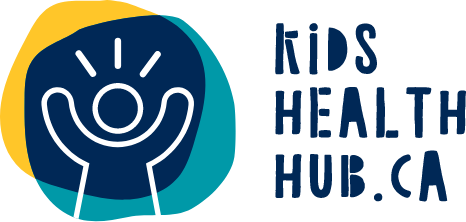

Dimensions of Health
How do you feel when you wake up on your best day?
You probably feel well-rested. You probably wake up to a space that is clean and organized. You probably feel excited to start the day. Maybe you have plans to hang out with your friends or family. You probably feel in control of your emotions, and your body feels ready for the day.
When you wake up in the morning and feel this way you are exhibiting signs of health. You can take time in your day to do a mental inventory check to recognize if you are feeling healthy. This includes:
Physical Check: Does my body feel?
Emotional Check: Do I feel that I am in control of my emotions? Do I have a healthy way of coping with my emotions?
Relationship Check: Do I feel that I have people in my life that support and listen to me?
What does health mean to you? For many, we often relate health to not being sick or injured. However, health has many different dimensions that apply to different parts of our lives. It is important to note that each dimension of health is as equally important as the next and together they provide an integrative view of our health.

So, what are these dimensions of health and what do they mean?
Intellectual health refers to continually challenging yourself through learning and experiencing new things. Fostering intellectual health helps us to critically think and develop positive coping skills when faced with a challenge. Activating your brain through practicing new skills and activities can also strengthen your memory and concentration.
- Build a puzzle
- Build something
- Try a new hobby
- Read a book or graphic novel
Physical health refers to the state of your physical body. We can promote physical health and take care of our bodies through developing healthy habits that help them to function properly. These habits include healthy nutrition, regular exercise, and sleep. Increasing our physical health may also include good hygiene.
- Eat a healthy snack
- Have a good night’s sleep
- Eat a healthy snack
Emotional health refers to our thoughts and emotions. Being aware and understanding of our feelings is essential. This allows us to value our emotions and helps us to process and express them in a healthy way. Fostering our ability to process our emotions also relates to strengthening our coping skills which we will need for the challenges in our lives.
- Talk to a loved one
- Journal
- Identifying your emotions
Social health refers to our connections with others. We do not need a lot of friends to be socially healthy. Social health is more about quality rather than quantity. However, we need partners, friends, and family members in our lives that support us and grow with us. To be socially healthy, we must also be supportive of others in our lives and foster healthy connections.
- Call a loved one (or Zoom, FaceTime, Duo, etc.)
- Set time aside to connect with a loved one
- Play a game with a loved one
Environmental health refers to being aware of our personal environment and surroundings. It is necessary for us to understand how we impact our environment and how our environment impacts us. This is why we need to take care of our environment to foster our well-being.
- Recycle
- Clean your home/room
- Clean out your closet and donate clothes
Spiritual health refers to seeking meaning in our lives and our purpose. Our purpose is aligned with our personal morals and values, so it is vital to provide time for personal reflection. The creation of connections between ourselves and our environment can also promote spiritual health. These connections may be to our cultures, communities, or other groups!
- Think about what is important to you
- Reflect on your values
- Connect with nature
Occupational health refers to the enjoyment of our jobs. It is important to feel fulfilled by what we are doing and feel that we are in a position where we can thrive. We can grow our interests by taking various classes. This will help us to choose a career that is best suited to our interests and talents, which will in turn increase our occupational health. In addition to being a student, you may also have a part-time job. Both can impact your occupational health.
- Try different option classes
- Explore career choices based on your interests
- Volunteer or get a job in a field that interests you
Please remember, that it is okay to have days that are off. You cannot feel your best every day. This is why it is important to practice self-care and focus on all of the dimensions of health so that you can have resiliency against life’s challenges. It is okay not to be okay, but if you haven’t been feeling okay for a while, please look to the Mental Health Concerns section.

Trending Topics
Depression
Depression What Is It? Depression is a mood disorder which means it impacts how a person is feeling. It can cause a person to feel
Accidental Overdose
Accidental Overdose What Is it? An overdose is what happens to someone’s body when they take too much of a substance or too many substances.
Online Relationships
Online Relationships Online can be fun! There are games, music, and videos. We can talk to friends and family online. Tips for Being Safe Online:
Online Relationships
Online Relationships Online can be fun! There are games, music, and videos. We can talk to friends and family online. Tips for Being Safe Online:

